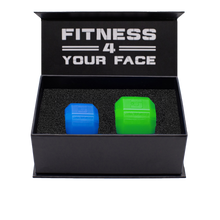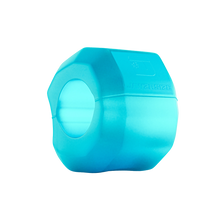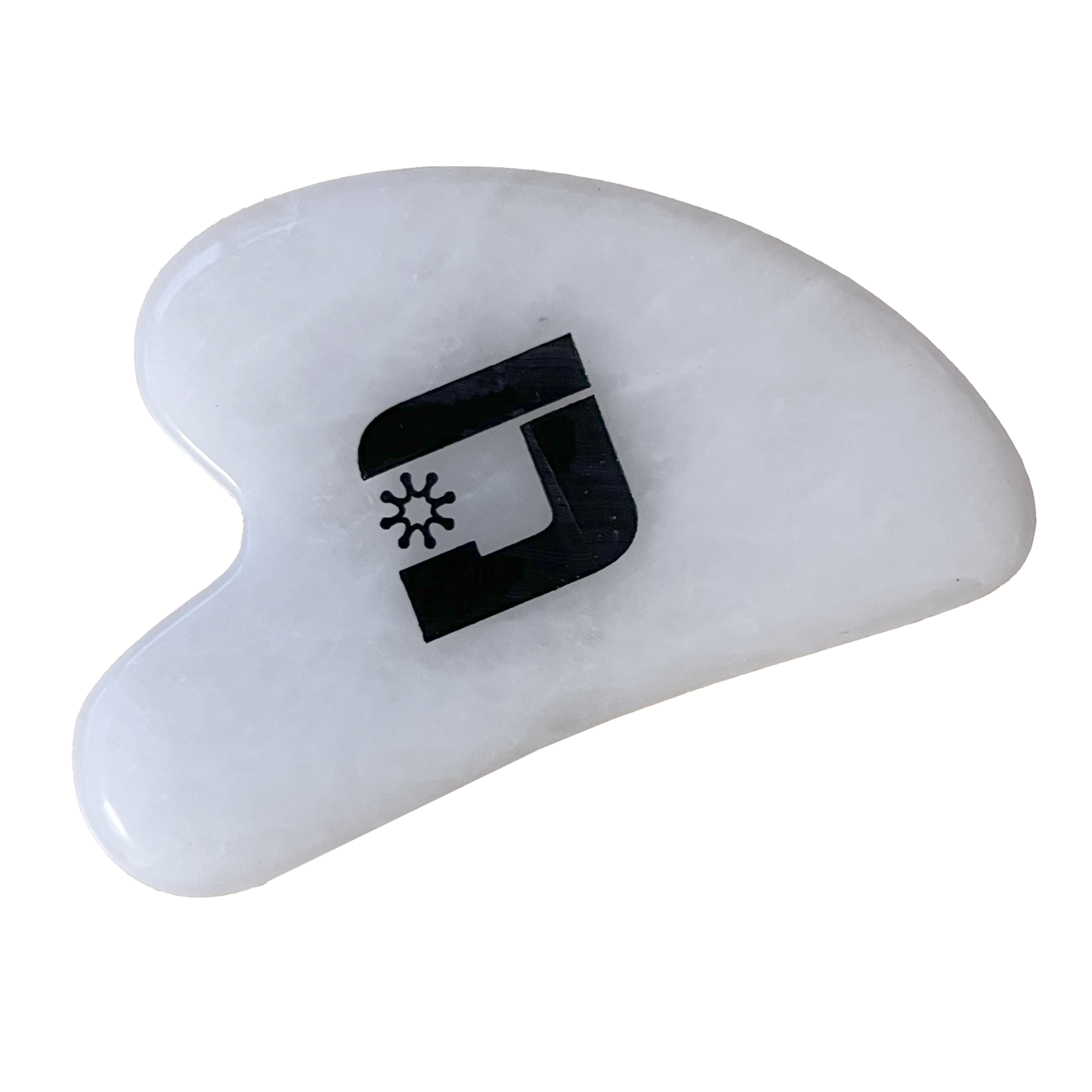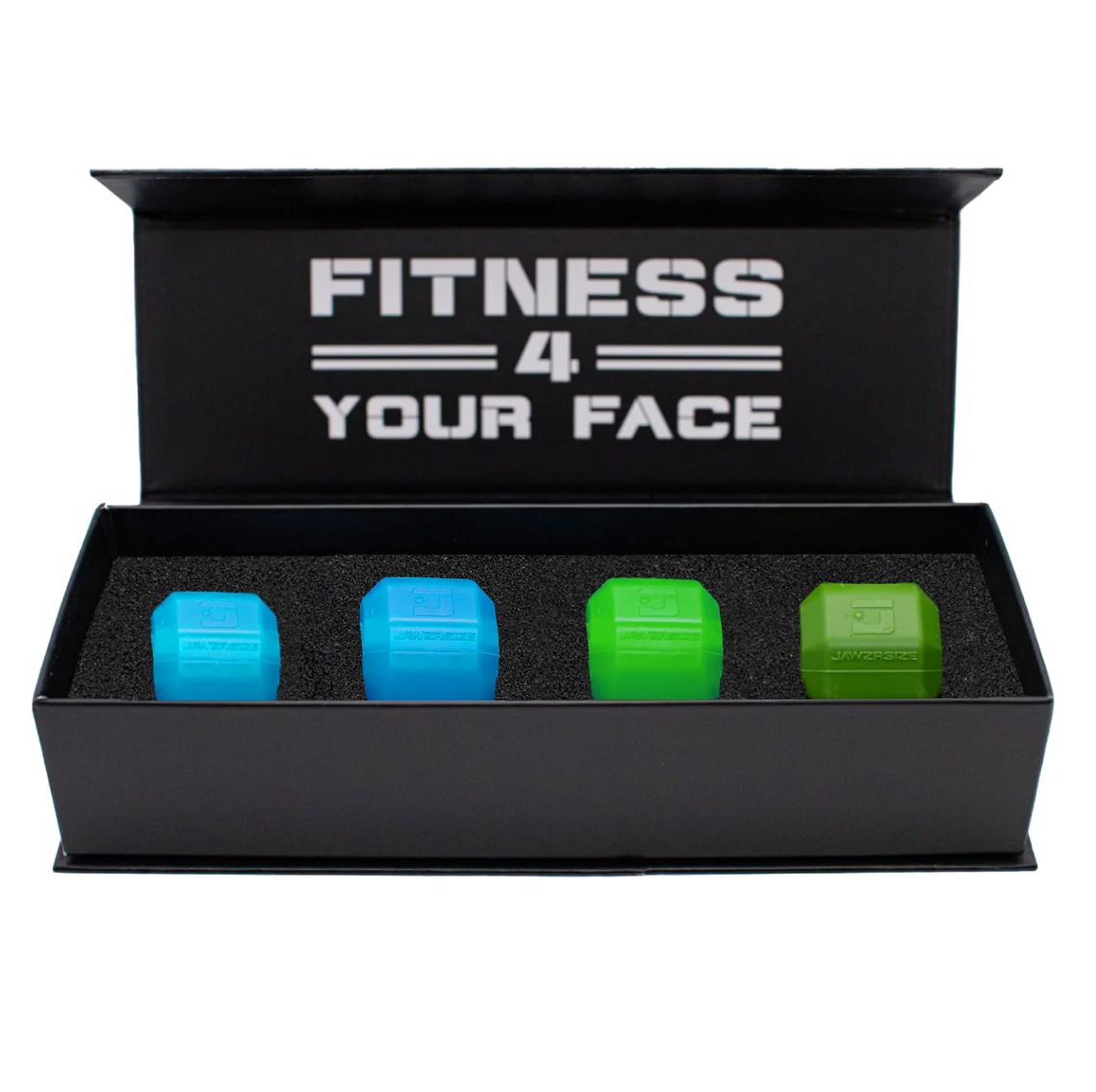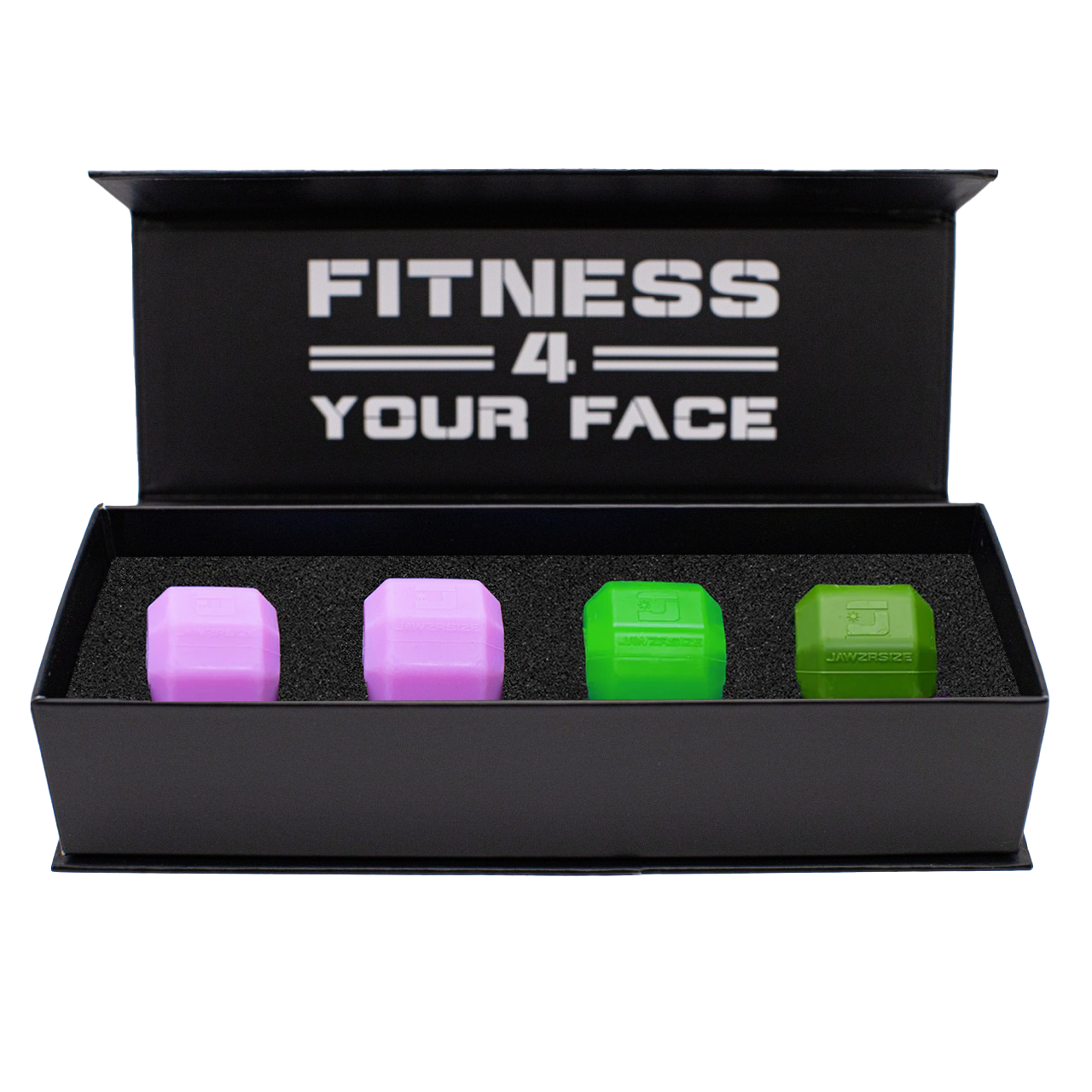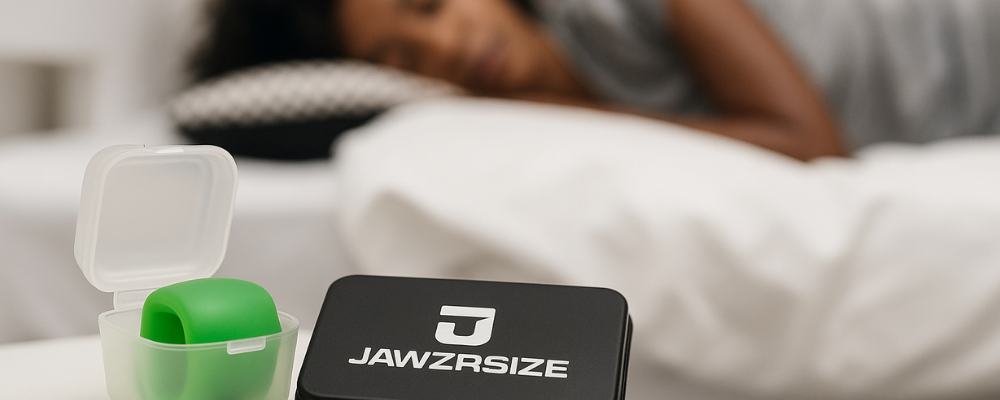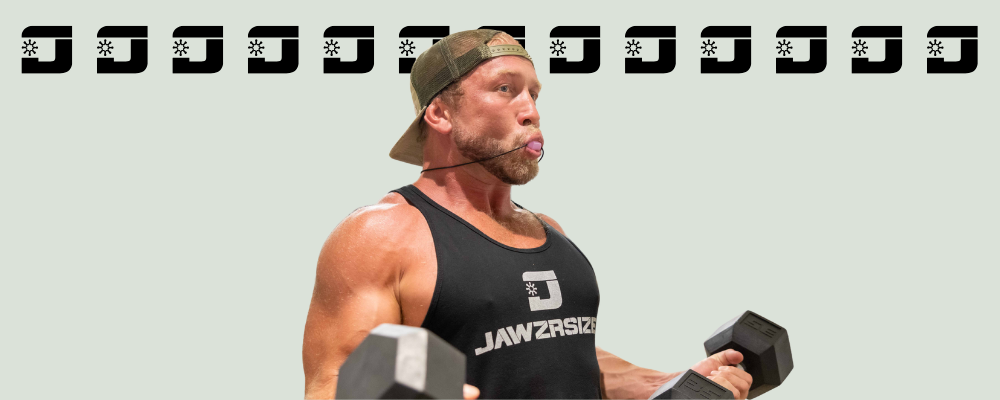Tight jaw muscles are a common and often painful problem. Identifying the source of jaw tightness is the first step in remedying the situation. Whether your tight jaw is a chronic or intermittent condition, it is problematic if it interferes with your ability to carry out your everyday routine.
The jaw is a ball and socket joint similar to the joint found in the shoulder. This joint and the muscles surrounding it control the opening and closing of the mouth, yawning, and chewing.
Jaw tightness is often a symptom of one or more of the following; stress, anxiety, teeth grinding (bruxism), overworking the jaw while chewing, arthritis, inflammation, or injury.
Your reaction—whether clenching or grinding your teeth—is what causes jaw pain. Jaw tightness often causes pain that radiates to other parts of the body, such as the head, neck, ears, and teeth. Whatever the source of the tightness, when you’re experiencing jaw discomfort, you want relief as quickly as possible.
There are exercises and techniques you can employ right now to relieve jaw tightness. In this article, we will explain what you can do to relax your jaw muscles and reduce jaw stiffness.
What Muscles Are in the Jaw?
The jaw is made up of muscles that move the jaw in a complex three-dimensional way. Three jaw muscles control the closing of the mouth, and two control the opening of the mouth.
The motor unit is the basic functional muscle unit in the jaw. Each jaw muscle creates the force necessary to create a specific movement of the jaw. These movements are classified as voluntary, reflex, and rhythmical.
The masseter muscle controls chewing. It is also the strongest muscle in the body. This muscle is located along the jaw and behind the cheeks. This muscle is also used when you clench your jaw or grind your teeth. Most people can generate at least 150lbs of force between their teeth with the masseter muscle, temporalis muscle, and a few smaller muscles.
As you may have guessed, all of that force can create problems. Our mouth muscles are always at work. To keep these muscles in good condition, it's essential to know how to relax your jaw and face muscles.
How Do You Loosen Your Jaw Muscles?
When you’re stressed or experiencing anxiety, you may unconsciously clench or grind your teeth, resulting in a stiff jaw. Similarly, if you are suffering from a condition such as lockjaw, you may experience tightness of your jaw muscles.
While jaw pain is often caused when we unconsciously tighten our jaw muscles, what causes lockjaw itself? The answer is a tetanus infection which can cause serious problems.
Lockjaw is a painful condition. Sufferers often experience headaches and muscle stiffness. In more extreme cases, the sufferer can’t open their mouth. Thus, the condition is colloquially referred to as lockjaw.
Regardless of what is causing your stiff jaw, you can take steps to loosen your jaw muscles.
Jaw Joint Exercises
✅ Relaxed Jaw Stretch: Rest the tip of your tongue against the back of your top front teeth while simultaneously lowering your bottom jaw. Move your lower teeth away from your upper teeth. Keep your jaw muscles relaxed throughout the movement.✅ Smile Stretch: Smile as widely as you can without causing pain while opening your jaw an additional 2-inches. Deeply inhale through your mouth and exhale while you slowly stop smiling.
✅ Chin Tucks: Stand against a wall. Pull your chin towards your body, creating a double chin. Hold in place for 3 to 5 seconds. Repeat this exercise several times.
✅ Thumb Resistance: Hold your thumb below your chin. Open your mouth while applying pressure to your chin with your thumb. Hold for 3 to 5 seconds before closing your mouth.
How to Relax Your Jaw and Face Muscles
Relaxing your jaw is a learned skill. Most of us go through our days with little awareness of how we are holding our jaws. Unless we experience jaw pain or discomfort, we rarely think about this joint and the muscles that assist us with important tasks such as chewing, drinking, and yawning.
Learning how to relax jaw muscles requires sustained focused effort. We’re going to explore some techniques you can use to begin relaxing your jaw today.

💆♀️ Apply a cold or hot compress to your jaw.
💆♀️ Slack Jaw: Fully relax your mouth and let your jaw hang open. Touch the very back of your mouth with the tip of your tongue. Stay in the position for 5 seconds, then slowly close your mouth. Repeat 10 times.
If you continue to experience jaw pain or stiffness after using these exercises, talk to your doctor or pharmacist. There are over-the-counter anti-inflammatory drugs, pain relievers, and prescription medications that may be useful for chronic cases.
White Jade Gua Sha for Facial Massage
Looking for a natural and effective way to relax and tone your facial muscles? The White Jade Gua Sha is exactly what you need!This traditional tool, used in Chinese medicine, is perfect for relieving tension in your jaw, neck, and other areas of your face. By using Gua Sha, you can boost blood circulation, reduce puffiness, and experience a deep sense of relaxation.
Its ergonomic design fits perfectly to the contours of your face, delivering a gentle yet effective massage.
Treat yourself to the ultimate self-care experience and let the White Jade Gua Sha elevate your beauty routine. It’s more than just a tool – it’s a way to unwind, relax, and feel rejuvenated.
👉 Get your Gua Sha today and start feeling the difference!
How to Prevent Jaw Tightness
Stress and anxiety are among the most common causes of jaw tightness. Addressing these problems will go a long way in helping alleviate a stiff jaw. Studies have shown again and again that daily exercise is a great stress reliever. Even a brisk daily walk will help.
Other ways you can reduce the occurrence of jaw tightness from stress include:
🧘 Meditation🧘 Yoga
🧘 Deep breathing
Also, avoid overusing your jaw muscles when eating. If you’re experiencing jaw discomfort, avoid foods that require a lot of chewing, such as carrots, steak, nuts, and taffy.
Final Thoughts
Any number of conditions may cause a tight jaw. Jaw pain and muscle tightness can be debilitating if left untreated. There is no need to suffer silently with a stiff jaw. There are many methods available to reduce and, in some cases, eliminate jaw tightness.
Decreasing stress and anxiety may eliminate behaviours such as teeth clenching and grinding. Light aerobic exercise also helps. The exercise and relaxation tips discussed in this article will enable you to begin loosening and relaxing your jaw and face muscles as well.
A tight jaw can stem from a variety of causes and can significantly impact your quality of life if left untreated. However, you don't have to suffer in silence. There are several effective methods to relieve jaw tightness, including the exercises and relaxation techniques discussed above.
In addition to these techniques, using the Jawzrsize device is an excellent way to strengthen and tone your facial muscles, just like you would train your body at the gym. While Jawzrsize is not exclusively designed for jaw disorders, it can certainly assist in the process by promoting muscle engagement and improving overall muscle tone in the face.
👉 Transform your look and enhance your beauty with the Total Transformation or Total Contouring Kit – shop now and see the difference!


It’s important to note that if you're dealing with severe jaw issues or pain, it's always best to consult a healthcare professional to address the underlying problem. Jawzrsize can complement your efforts to relax and strengthen your jaw, but it should not replace professional treatment for serious conditions.
Take care of your jaw and facial muscles today with a combination of techniques, including using Jawzrsize, and feel the benefits of a relaxed, strong, and toned face!
Frequently Asked Questions
| Question | Answer |
|---|---|
What is Jawzrsize and how does it work? |
Jawzrsize is a facial exercise device designed to strengthen and tone the muscles in your face and jaw, similar to how you work out the rest of your body at the gym. It uses resistance training to target key areas, promoting muscle definition and overall facial health. |
Can Jawzrsize help with jaw tightness or disorders? |
While Jawzrsize is not a specific treatment for severe jaw disorders, it can help strengthen and tone facial muscles, which may assist in the recovery process for mild jaw tightness. For severe conditions, it’s recommended to consult a healthcare professional before using any device. |
Is Jawzrsize suitable for everyone? |
Jawzrsize is generally safe for most people, but those with severe jaw or dental issues should consult a healthcare professional before use. It’s a great tool for anyone looking to improve facial muscle strength and appearance. |
How often should I use Jawzrsize for best results? |
For optimal results, it’s recommended to use Jawzrsize regularly, starting with shorter sessions and gradually increasing as you become accustomed to the resistance. Consistency is key to seeing improvements in muscle toning and jaw definition. |
Can Jawzrsize be used alongside other facial treatments like Gua Sha? |
Absolutely! Jawzrsize can be used in combination with other facial treatments like Gua Sha. While Jawzrsize focuses on strengthening and toning, Gua Sha provides a relaxing massage that can improve circulation and relieve tension, making both treatments complementary for overall facial health. |

